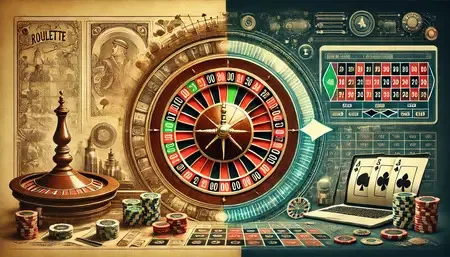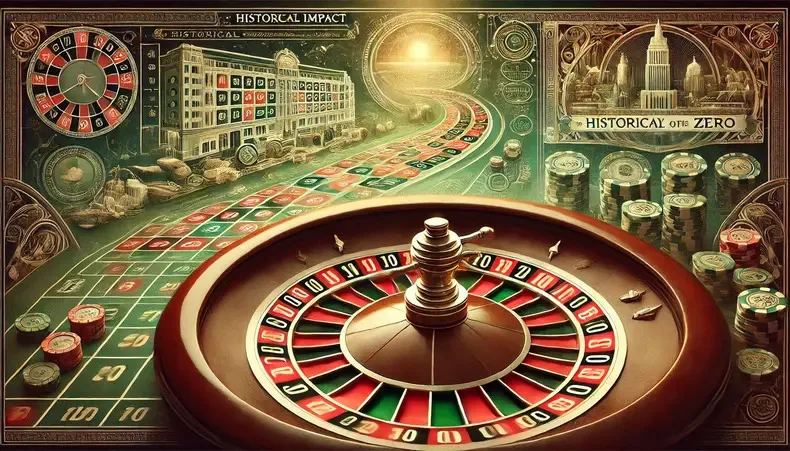The Role of Zero in the History of Roulette

Roulette, a classic game of chance, has been a staple in casinos around the world. A key element in the evolution of this game is the introduction of the zero. This seemingly simple addition has had a profound impact on the game, altering its odds and influencing its popularity. This article explores the historical significance of zero in roulette, tracing its origins and examining its role in both traditional and online casinos today.
History of Roulette in Casinos
Roulette, which means “little wheel” in French, originated in 18th century France. The game was an amalgamation of various existing games, including the English wheel games Roly-Poly, Ace of Hearts, and the Italian board games Hoca and Biribi. By the late 1700s, it had evolved into a game that closely resembles the modern version, with a numbered wheel and a betting table.
Initially, the roulette wheel included numbers 1 through 36. However, it lacked the crucial zero that is synonymous with the game today. The introduction of zero was a turning point in the history of roulette, fundamentally changing its dynamics and appeal.
The Emergence of Roulette with One Zero
The concept of a single zero in roulette was introduced in 1842 by Frenchmen François and Louis Blanc. They created a wheel with a single zero slot to offer a house edge and make the game more appealing to the casinos. This innovation not only increased the house’s chances of winning but also made the game more attractive to players, as the odds were still more favorable than those in other games.
This version of roulette, with a single zero, became known as “European Roulette” and quickly gained popularity. Its appeal was due to the relatively low house edge of 2.7%, which made it a favorite among players. The single zero variant remains popular in European casinos and online platforms alike, providing a balanced mix of excitement and fair odds.
Where to Play Online Roulette for Money?
For those interested in trying their luck with online roulette, platforms like PuntoScommesse Casino offer a variety of roulette games, including the classic European version with a single zero. This online casino is known for its user-friendly interface, reliable payout systems, and a wide range of betting options that cater to both beginners and experienced players. PuntoScommesse Casino provides a safe and entertaining environment for roulette enthusiasts to enjoy the thrill of the game from the comfort of their homes.

History of Roulette in the USA
Roulette made its way to the United States in the early 19th century. American casinos, always looking for ways to increase their profits, modified the European version of the game by adding a double zero (00) to the wheel. This change significantly increased the house edge to 5.26%, almost doubling the casino’s advantage compared to the European version.
The double-zero variant, known as “American Roulette,” became the standard in U.S. casinos. Despite the higher house edge, American Roulette gained popularity, partly due to its association with the glitz and glamour of American casino culture. Today, American Roulette is commonly found in Las Vegas, Atlantic City, and other major gambling destinations across the country.
Roulette in Online Casinos
The advent of the internet brought about a revolution in the gambling industry, and roulette was no exception. Online casinos have made it possible for players to enjoy roulette from anywhere in the world, at any time. Online roulette offers various versions of the game, including both European (single zero) and American (double zero) variants.
Online casinos like PuntoScommesse Casino provide players with the opportunity to choose their preferred version of roulette, offering both live dealer games and virtual roulette experiences. The convenience, variety, and accessibility of online roulette have contributed to its enduring popularity, ensuring that this classic game continues to thrive in the digital age.
The introduction of zero in roulette was a pivotal development that shaped the game’s history and evolution. From the original single zero in European Roulette to the double zero in American Roulette, these changes have influenced the game’s odds, appeal, and global reach. As roulette continues to adapt to modern technologies, its rich history and the role of zero remain central to its enduring allure.



